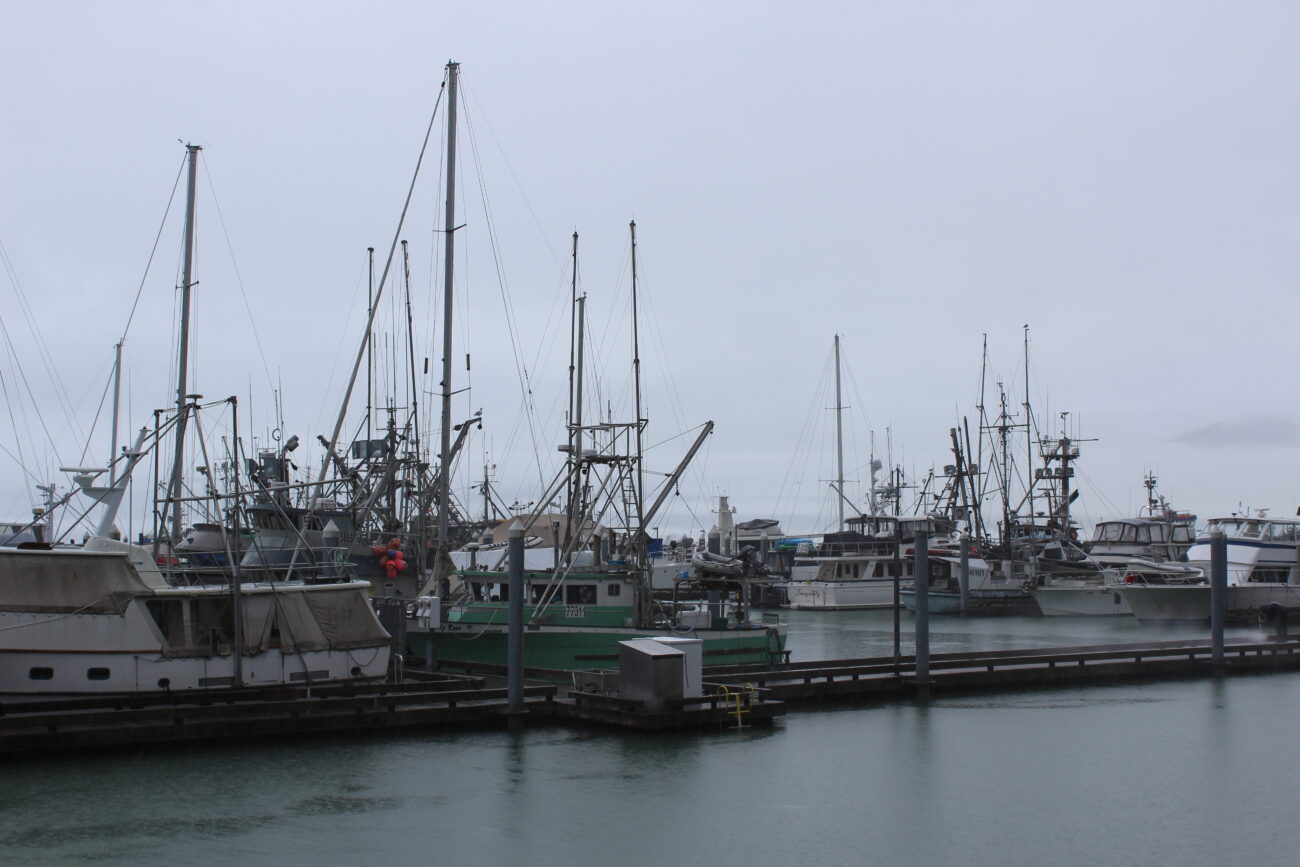
(Sage Smiley / KSTK)
Wrangell’s borough assembly has joined the chorus of Southeast communities condemning a lawsuit filed by a Seattle-based environmental organization that threatens to shut down the Southeast king salmon troll fishery.
Wrangell’s assembly unanimously voted to speak out against a lawsuit targeting Southeast Alaska’s king salmon troll fishery at a special meeting on February 17.
During an initial discussion on Valentine’s Day, assembly member Ryan Howe said he finds the suit baffling.
“I’ve got a finger on the pulse of like: ‘What is a healthy fishery? What is an environmentally sustainable fishery?’ And Alaska fisheries are well managed,” Howe said, adding: “Other environmental organizations will recognize the Alaska fisheries as being well managed sustainable fisheries that take care of fish and communities. So this is baffling and just crazy to me.”
The lawsuit, filed by Seattle-based Wildfish Conservancy, alleges that the National Marine Fisheries Service doesn’t give enough weight to the impact of Alaska’s king salmon harvests when it comes to an endangered population of orcas known as Southern Residents which live around Puget Sound. The lawsuit leaves the future of the Southeast king salmon troll fishery in the hands of a federal judge in Washington state.
Assembly member Bob Dalrymple says a potential shutdown could have a big impact on Wrangell.
“I’m very concerned about this,” Dalrymple told fellow assembly members, “And I totally believe it affects the wellbeing of the community, it has a direct effect – could have a direct effect on us.”
Brett Stillwaugh is the Wrangell board member of the Alaska Trollers Association. He testified to the assembly that he thinks the suit could be a slippery slope.
“I believe if the trollers are shut down by this lawsuit, it will pave the way to shut down all commercial and sport salmon fishing in Southeast Alaska,” Stillwaugh said, “As the basis for this suit is a NOAA National Marine Fisheries flawed BiOp (biological opinion) and incidental take permit – the same BiOp used to justify the sport, troll, seine and gillnet fisheries in Southeast Alaska.”
Stillwaugh says he believes the suit is also misdirected. There’s some conflict over whether the orcas’ food source – king salmon – is really the issue at all. Plus, the troll fishery isn’t the largest consumer of kings.
“Our small boat artisan fishery, a thousand miles away, is catching an average of 400 Puget Sound kings a year, denying the Southern Resident killer whales those fish,” Stillwaugh said. “Meanwhile, the Washington State sport fishery catches 84,000 Puget Sound kings in the Strait of Juan de Fuca every year.”
The statewide trollers association is not named in the lawsuit, but it is actively fighting it. As a board member, Stillwaugh requested a donation of $7,500 from Wrangell’s Assembly to help with the fishing organization’s legal costs. Many other Southeast communities – Port Alexander, Pelican, Sitka, Petersburg and Ketchikan – have donated or are in the process of approving donations.
But assembly member Dalrymple said he didn’t know how Wrangell’s money could help.
“This is a lawsuit against the National Marine Fisheries Service. So it’s already fully funded by quite qualified folks to deal with that at the Department of Justice,” Dalrymple said. “I’m not sure what our funding would go to or what Alaska Troller[s] Association would use that for. My impression is that they’re probably getting ready for an appeal. And maybe that’s another time to get back a little more specific on funding needs for that.”
Some other assembly members expressed support for adding a donation to the trollers’ group, but ultimately, Wrangell’s assembly passed a resolution without a financial contribution to the cause.
Get in touch with KSTK at news@kstk.org or (907) 874-2345.











